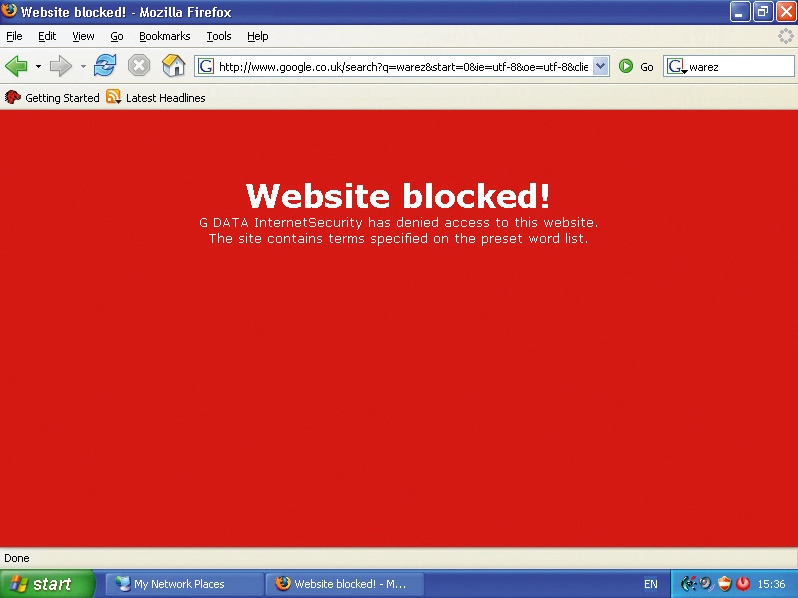TechRadar Verdict
Free AV apps work just as well
Pros
- +
Performance
Cons
- -
Poor value
Why you can trust TechRadar
We've run out of clichés for introducing packages that offer a complete Internet security solution. G Data can't seem to think of an original name for its product either: 'Internet Security' is used by Norton and F-Secure.
The feature list for all three is almost identical because each product offers comprehensive antivirus checking, spyware, adware and popup protection as well as a firewall. The difference is in how effective each solution is at making your Internet browsing as secure as possible, without being obtrusive.
Installing G Data's AntiVirusKit InternetSecurity 2006 (AVK for short) is simple, but at times the native German of the designers creep into the user-interfac. Otherwise, there were no further problems. Around 16MB of application and virus updates were downloaded, before performing the essential system reboot.
Once you've restarted, you'll find AVK already running in your Taskbar, and the main application available from your desktop. The main user-interface is a tabbed window that enables you to switch between each security category.
Anti-virus is selected by default, with the next window being the firewall, followed by anti-spam, a Web filter and 'KidSafe' - a parental control mechanism for restricting your child's Internet access.
Anti-virus protection takes the unusual step of using two highly regarded third-party monitoring engines at the same time. The two engines, from Kaspersky and BitDefender, are run in a 'performance-optimised' mode and use a little more processing power than a single engine, but it's also possible to run both independently.
The virus checker and the related anti-spam tool scan emails by monitoring the connection between your client and the email server, and the virus checker can respond within minutes to a new threat. This is before either Kaspersky or BitDefender have added the virus signature to their own databases.
We found AVK's firewall to be sensibly configured without any obvious holes for the malicious hacker to get control of your machine. New applications need to request permission to access the network, and we found it tricky to enable a 'Network Neighborhood' connection from an internal router. The connection view lists every connection from your machine, and clicking any firewall rule will list recently blocked requests.
The Webfilter did a good job of blocking tiresome banners and pop-up windows, but you can find this functionality built into Firefox for free. It's perhaps for this reason that Firefox users don't get the Webfi lter tool bar, which is currently only available for Internet Explorer.
Fortunately, the 'KidSafe' content fi lter blocks content for both IE and Firefox. Filters can be downloaded or created yourself using keywords, and fi lters are applied to a specific Windows user account. While this isn't going to prevent a knowledgeable teenager from getting through, it's good enough for the vast majority of cases.
AVK is a capable piece of software, and the double-strength virus checking is undoubtedly its strongest asset. Yet what's missing is the edge required to recommend AVK over its competitors.
- We've also highlighted the best antivirus
Tech.co.uk was the former name of TechRadar.com. Its staff were at the forefront of the digital publishing revolution, and spearheaded the move to bring consumer technology journalism to its natural home – online. Many of the current TechRadar staff started life a Tech.co.uk staff writer, covering everything from the emerging smartphone market to the evolving market of personal computers. Think of it as the building blocks of the TechRadar you love today.
